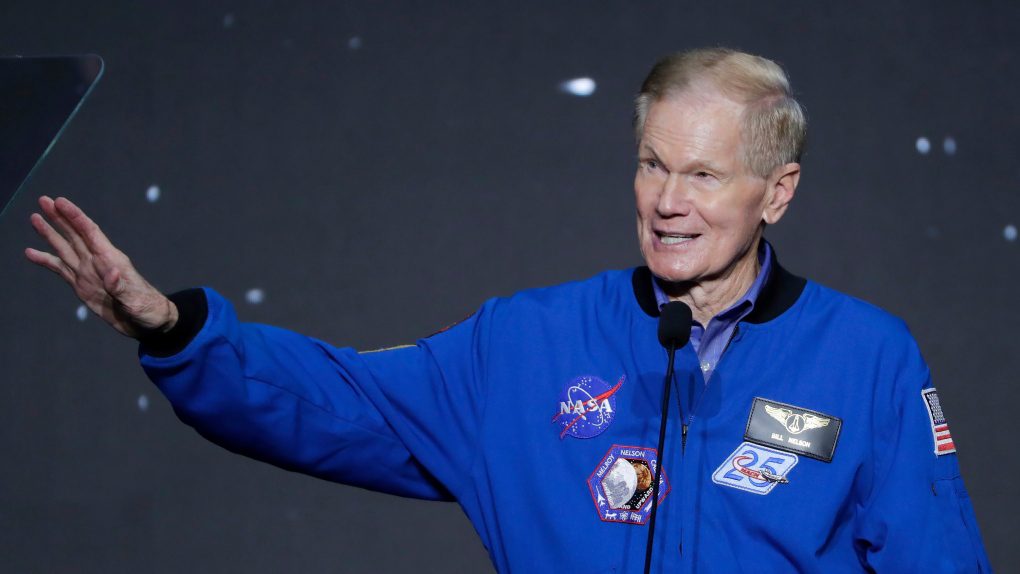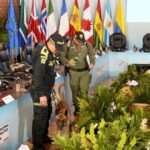Global Courant 2023-04-26 02:33:28
As astronauts prepare for the first manned mission to the moon in 50 years, a space exploration plan that will see Canada play a bigger role, the issue of keeping up with China will be a consideration, NASA Administrator Bill Nelson said.
Nelson sat down with CTV’s Power Play for an exclusively televised talk about the dynamics of space relations with Russia and China, and the continued role Canada will play in deep space exploration.
“The short answer is yes, we are in a space race to go to the moon with China,” he said Monday.
Despite global tensions with Russia over the ongoing conflict in Ukraine, NASA’s relationship with Russian cosmonauts remains strong, Nelson said, adding that he sees a lack of transparency from the Chinese space agency.
Canada is less willing to characterize it as a competition to get to the moon first.
“I don’t know if it’s a race, but it’s definitely a moment for humanity,” Innovation, Science and Industry Minister François-Philippe Champagne told reporters on Parliament Hill on Monday.
“You know, we’re going back into space after 52 years, so that’s a while.”
Artemis II is the first crewed mission to the moon since 1972 and will include Canadian astronaut Jeremy Hansen among the crew, the first astronaut outside the US to travel to the moon.
The mission comes as China’s ambitious space program has begun or plans several lunar missions, will land a lunar rover in 2019, and plan a lunar research station within a decade.
It also comes at a time when terrestrial tensions are high between Russia — whose space agency has consistently partnered with NASA over the past several decades — and Ukraine’s western allies, including the US and Canada, due to Russia’s ongoing invasion.
And yet, the difference in space relationships couldn’t be greater, Nelson said.
“In the civilian space, we’ve been working with the Russians since 1975,” he said. “In the midst of the Cold War, the Soviet Union and today we still work with them in a very collaborative and peaceful way.”
He pointed out that Russian cosmonauts co-pilot the International Space Station with NASA astronauts and they often trust each other with their lives.
“We built the International Space Station together with the Russians. What a contrast to the Chinese government,” said Nelson. “They are secretive, they are opaque. They won’t share when Earth is threatened by one of their tumbling rockets coming back, they won’t share their trajectories, so it’s a huge difference in the way we approach our civilian space program with the visa of the Russians against the Chinese.
China has drawn criticism from NASA in the past for handling space debris after the remains of a rocket crashed into the Indian Ocean in 2021. fuel tensions.
Nelson said that despite the war in Ukraine, NASA’s relationship with the Russian space agency has not changed.
“Fortunately, the professional, stable relationship has not missed a moment. We need the two of us, Russia and the US, to operate the space station,” he said.
“What an irony that is. Look what is happening in Ukraine, on Earth. And look at the peaceful relationship we have in space.”
NASA aims to put astronauts back on the lunar surface by the end of 2025, hoping to explore an area they didn’t explore the last time Boots were on the moon: the South Pole.
“We’re going back to the moon, this time it’s a different moon. Because we’re going to the South Pole,’ Nelson said. “And we are going back for another purpose. It’s not just going and coming back. It is now to go there to learn, to live, to invent, to create, to go further into the cosmos.”
It will be a milestone not only for NASA, but also for Canada and the Canadian Space Agency, as the first Canadian astronaut will orbit the moon when Artemis II launches in 2024.
Nelson pointed out that Canada has long been an invaluable collaborator in space exploration, with the development of the famous Canadarm and its successors.
“It was the first time on the space shuttle, the vehicle I was flying,” Nelson said. “It’s on the International Space Station now, and it will be, and Canada was the first to sign on, which will be a mini-space station in lunar orbit.”
Artemis II is just one stage in NASA’s current plan to advance space exploration. The agency aims to develop a lunar orbiting space station to be called the Lunar Gateway, all in the hopes of traveling deeper into space.
“There will be a Canadian on Gateway,” he said.








